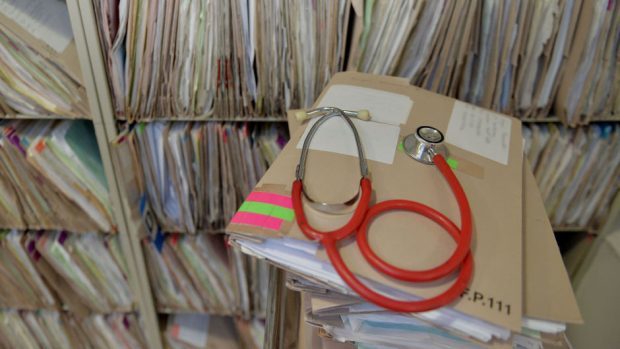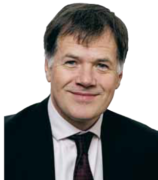“So, are you just a GP?”
I can feel Erica, my wife, stiffen whenever I’m asked this question – and I’m asked it a lot.
That little word “just”, with its hints of hierarchies; implying GPs are lesser doctors than others.
I am a GP. It is the most rewarding, challenging and satisfying job I can imagine. There is nothing I would rather be doing.
Who else can look after peoples’ complex medical problems and mental health issues often in the most deprived social environments? GPs are uniquely placed to forge the long-term relationships which provide comprehensive and coordinated care to people, right from their very first contact with the NHS – work that has repeatedly been shown not only to save lives but also to prevent the most vulnerable from falling through the cracks in our society.
Why is it that ‘GP’ fails to have the standing of other roles within the NHS, despite it being the jewel in the crown of the service? This fact is recognised internationally. In 2017 I had the opportunity to describe general practice’s role to delegations from Thailand and China. Both countries are keen to learn from us and plan to copy our GP model. They see it as a real opportunity to meet the challenge we face across the world: an ageing population with increasingly complex medical issues. Both nations are facing up to the reality of how difficult it is to build a health service where the focus of care is predominantly in hospitals and where there is no culture of generalist doctoring.
GPs’ effectiveness depends on clear communication and teamwork right across the NHS and wider care services in our communities. Computers support us, ensuring we have the data for each consultation at our fingertips and, increasingly, highlighting opportunities to provide even safer and more effective care. My handwriting, sadly, is still appalling.
What’s more, general practice is incredibly good value for money. £135 will buy you one year’s GP care for a patient who will average five contacts with the practice. This contrasts with £150 for just one hospital outpatient appointment.
The Scottish Government has committed to putting patients at the heart of how care is provided, building a personalised approach and encouraging shared decision-making. This will require doctors who are trained in looking at the whole patient and who are in the position to build lasting and trusting relationships over time. This is at the core of GP specialty training and we have the unique opportunity to practise it in the very heart of all of Scotland’s communities, from city centres to the remotest glens and islands.
The GP practice is also increasingly being recognised as the ideal environment to train the next generation of doctors. My practice, in Dingwall, has been involved in piloting what’s verbosely known as the ‘longitudinal integrated clerkship’ model. We have been asked to host medical students for the entire fourth year of their undergraduate training.
We are not just teaching general practice, but we are also recognised as being ideally placed to teach the full breadth of the curriculum in the context of how illness first presents itself, right through to the long-term ongoing care people so desperately need in their communities.
Various studies have shown that doctors trained this way will have better communication skills, better ability to manage risk and better ability to provide cost effective care, whether they end up as GPs or hospital specialists. Surely a win-win situation.
I love the variety. The reality of a morning in a GP’s life may include new mums, minor surgery, mental health, myocardial infarctions – and that’s just some of the M’s!
The fact that I am not limited to a particular age range or specialism and that I am frequently the first port of call for patients with problems that lead not only to variety but also to challenge and fulfilment. My work involves being expected to be competent across all the illnesses that could present themselves to me but also, crucially, to be able to see the whole patient in the context of their life and community. Some patients say “nobody knows me like my GP”, and I take pride in that.
I also love the fact that I have been looking after some of my patients for over 25 years and enjoy real satisfaction that some of them are taking medication, have received treatment or have made lifestyle changes that will quite literally have saved their lives. I hear amazing stories of their lives, achievements, resilience or sometimes just a small window into their most personal fears and tribulations. It is a quiet universality which I cherish.
So if you are anxious about bothering your GP; don’t be. I know everyone hates ringing the surgery, but I promise you; nothing makes us happier than to be able to tell you everything is OK. If it isn’t we will be there every step of the way. That’s our job, we look after all of you.
Dr Miles Mack is a GP in the Highlands and the former chair of the Royal College of General Practitioners Scotland.











